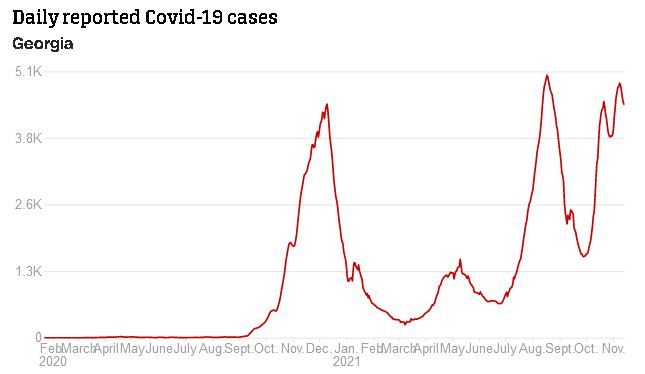If you're planning to travel to Georgia, here's what you'll need to know and expect if you want to visit during the Covid-19 pandemic.
The basics
Georgia has opened back up for tourism to citizens of any country, as long as they've been fully vaccinated, or are partially vaccinated after a Covid-19 infection. Unvaccinated arrivals from a limited number of countries are also allowed.
What's on offer in Georgia
Straddling the border between Europe and Asia, Georgia is one of the area's most exciting countries. Tbilisi is one of the world's great capital cities, with a strong cultural scene; Kutaisi, where many flights land, has a storied history; and in between there are jaw-dropping landscapes and remote mountain areas where it looks like time has stood still.
Who can go
Fully vaccinated citizens of any country, or those who have recently recovered from Covid-19 and have been partially vaccinated, are allowed unrestricted entry.
Entry, with restrictions, is also permitted for unvaccinated arrivals from the following countries: All EU member states, Israel, Turkey, Switzerland, Norway, USA, Canada, UK, Saudi Arabia, Qatar, Kuwait, UAE, Bahrain, Armenia, Azebaijan, Ukraine, Moldova, Kazakhstan, Russia, Belarus, Uzbekistan, Tajikstan, Kyrgyzstan, Turkmenistan, China, Japan, Korea, Oman, Monaco, Iceland, Serbia, Liechtenstein, Montenegro, Andorra, Albania, Northern Macedonia, Bosnia and Herzigovina, Jordan, Iraq, Lebanon.

What are the restrictions?
All vaccinated arrivals must present evidence of a completed vaccination cycle, or of recovery from Covid within 100 days alongside an initial vaccination.
Those arriving via land or sea must also present a negative PCR test taken within 72 hours of arrival, in Georgian, English or Russian. Children under 10 are exempt from the testing requirement.
For non-vaccinated arrivals from the countries listed above, the restrictions are tighter. They must travel direct to Georgia, with no stop-offs or transits. On arrival at the border they must present a negative PCR test taken within 72 hours of arrival, and must take a further PCR test on day three. They must also fill in a contact tracing form.
What's the Covid-19 situation?
There have been 784,091 cases and 10,975 deaths as of November 15. Close to 26% of the population has been vaccinated.
What can visitors expect
Face masks must be worn on public transport and in all indoor public spaces. Fines are meted out to those who don't comply. There are no curfews or travel restrictions.
Useful links
Ministry of Foreign Affairs
Contact tracing form
Local restrictions
Our latest coverage
You'll find a heap of inspiration in our past travel coverage. Flick through some of the country's most beautiful destinations, plan a hike in the Caucasus mountains and learn how the historic wine industry came back from the brink.















